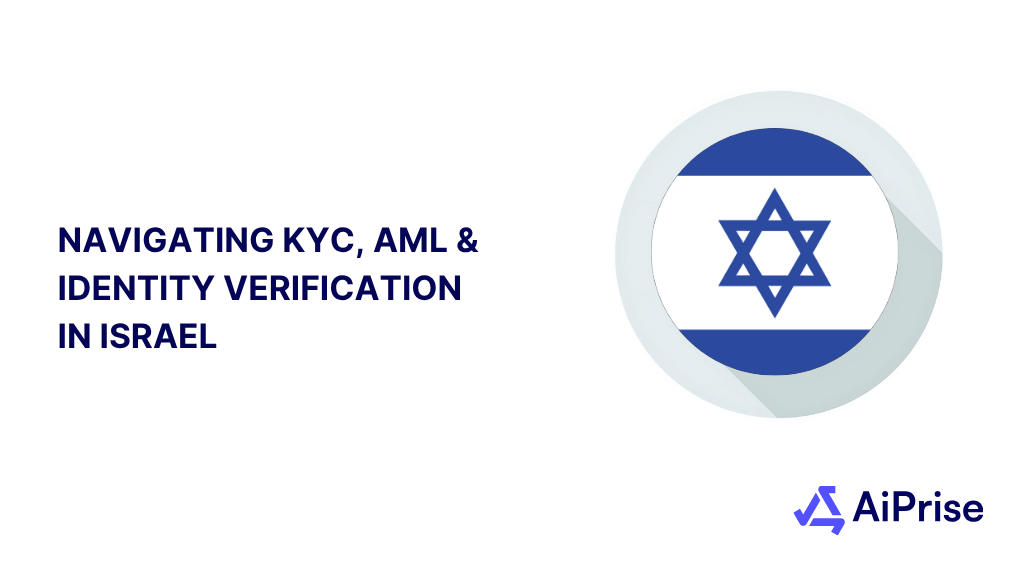AiPrise
12 mins read
July 4, 2025
What is KYC? A Simple Guide for Beginners

Key Takeaways










As online transactions and services grow rapidly, fraud risks have increased significantly, costing Americans $56 billion in 2021 and affecting nearly 49 million consumers. To combat this, businesses and individuals must adopt robust measures, such as Know Your Customer (KYC), a key regulatory process that fosters trust and credibility.
The global e-KYC market, an electronic version of the traditional process, was valued at approximately $1.57 billion in 2021. As businesses increasingly move online, the demand for secure, efficient, and reliable identity verification systems has never been higher.
In this blog, we’ll explain what KYC is, why it matters, and how effective practices benefit businesses and individuals by reducing fraud and ensuring a secure digital environment.
TL;DR – Key Takeaways:
- What is KYC?
KYC (Know Your Customer) is the process of verifying a customer's identity to prevent fraud and financial crimes. - Key Components of KYC:
The process includes identity, address, and document verification, as well as risk profiling to assess customer legitimacy. - Why KYC is Important:
KYC ensures regulatory compliance, protects businesses from fraud, and builds trust with customers. - Industries Using KYC:
Financial institutions, cryptocurrency platforms, payment providers, healthcare organizations, e-commerce companies, and more rely on KYC. - AiPrise Solution:
AiPrise streamlines KYC with AI-driven tools to ensure compliance, reduce fraud, and enhance customer experience.
What is KYC?
Businesses use KYC (Know Your Customer) to verify customer identities and ensure they engage only with legitimate individuals or organizations to prevent fraud, money laundering, and other financial crimes.
KYC involves gathering important information, such as a person’s full name, address, date of birth, and identification documents. For businesses, KYC also includes verifying the legitimacy of the company itself, a process known as KYB (Know Your Business).
As regulations around financial transactions continue to tighten globally, KYC has become a necessary part of conducting business. It helps businesses protect themselves from financial crimes, stay compliant with the law, and build trust with their customers.
With a clear understanding of what KYC is, let’s examine the key components that comprise this vital process.
The Key Components of KYC

KYC is a comprehensive process that involves several technical steps to ensure the identity of customers and minimize the risk of financial crime:
- Identity Verification
This step involves validating the customer's identity by cross-referencing personal details with reliable data sources. It typically includes checking government-issued ID, passports, or biometric data (such as facial recognition or fingerprints).
Modern KYC systems frequently employ advanced technologies, including Optical Character Recognition (OCR) and AI-powered document verification, to verify the authenticity of the provided documents. - Address Verification
Address verification is crucial for confirming the legitimacy of a customer’s provided address. This can be done by matching the address to official records or using utility bills, bank statements, or government documents that include the customer’s name and address.
In the digital world, this is often automated through third-party data sources or by using machine learning to detect and flag discrepancies.
Risk Profiling
Risk profiling assesses the level of risk associated with a customer. This involves analyzing a customer’s background, transaction history, and geolocation data to identify potential risks.
For example, businesses may use databases and algorithms to detect links to politically exposed persons (PEPs), sanctioned entities, or countries with high corruption risks. Companies use risk profiling to identify high-risk customers who may pose financial crime threats and take appropriate action.
- Document Verification
Document verification is a crucial part of the KYC process, ensuring that the documents provided by a customer are legitimate and have not been tampered with.
This involves using AI-driven image recognition to scan, authenticate, and verify official documents, such as driver’s licenses, utility bills, or corporate registration documents. The verification process often checks for holograms, watermarks, and other security features embedded in these documents to detect fraudulent activity.
Each of these components uses advanced technology to ensure data accuracy and mitigate risks. By using a combination of AI, machine learning, and third-party databases, businesses can streamline the KYC process, ensuring compliance while reducing the chances of human error or oversight.
Now that you know the essential elements of KYC, let’s look at how the KYC process works in practice.
How KYC Works: Step-by-Step Process

The KYC process is essential for businesses to verify the identities of their customers and ensure compliance with regulations. It helps mitigate risks like money laundering and fraud by thoroughly assessing the customer's background and legitimacy.
Here's an in-depth look at the KYC process:
Customer Identification Program (CIP)
The first step in the KYC process is the Customer Identification Program. This involves collecting and verifying basic information about the customer to establish their identity. Typically, businesses require the following:
- Full name
- Date of birth
- Address
- Government-issued identification number (e.g., Social Security Number, passport number)
For corporate clients, additional information such as the company's registration details and the identities of beneficial owners may be required. Verification is conducted by cross-referencing the provided information with official records and databases to ensure authenticity.
Customer Due Diligence (CDD)
Once the customer's identity is established, the next step is Customer Due Diligence. CDD involves assessing the potential risks associated with the customer. This includes:
- Understanding the nature and purpose of the business relationship
- Evaluating the customer's financial activities and sources of funds
- Screening the customer against global sanctions lists and politically exposed persons (PEPs) databases
CDD helps businesses determine the level of risk a customer may pose and decide on the appropriate measures to manage that risk.
Enhanced Due Diligence (EDD)
In cases where the CDD process identifies higher-risk factors, Enhanced Due Diligence is conducted. EDD involves a more detailed investigation into the customer's background and financial activities.
- In-depth analysis of the customer's business operations.
- Scrutiny of the customer's financial transactions.
- Gathering additional documentation to verify the source of funds.
EDD is particularly important for customers from high-risk jurisdictions or those with complex financial histories.
Ongoing Monitoring
KYC is not a one-time process; it requires continuous monitoring to detect and report suspicious activities. Here's how businesses can practice continuous monitoring:
- Regularly update customer information to reflect any changes that occur.
- Monitor transactions for unusual or suspicious patterns.
- Reassess the customer's risk profile periodically.
Ongoing monitoring enables businesses to promptly identify and address any emerging risks associated with their customers.
Record Keeping and Compliance Reporting
Businesses must maintain accurate records of the KYC process to ensure compliance. Here's what they should do:
- Keep detailed records of all customer information and verification steps.
- Retain documents for the required duration as per regulatory guidelines.
- Report any suspicious activities to the relevant authorities in a timely manner.
Proper record-keeping and compliance reporting enable businesses to demonstrate adherence to KYC regulations and facilitate investigations if necessary.
Having covered the steps in the KYC process, let’s see how this is applied across various industries.
Using KYC Across Different Industries
KYC practices vary by sector, as each industry faces unique risks and regulatory requirements. Here's a look at how KYC is applied in different industries:
- Financial Institutions (Banking, Insurance, Investment)
Financial institutions use KYC to comply with anti-money laundering (AML) laws and prevent terrorism financing. Banks, insurance companies, and investment firms verify customer identities to ensure they are not engaging in illegal activities.
For example, when opening a bank account, customers must provide documents like passports or driver’s licenses to confirm their identity. This helps mitigate the risk of fraudulent transactions and money laundering.
- Cryptocurrency Platforms
The anonymous nature of cryptocurrencies makes them vulnerable to money laundering and fraud. To combat this, cryptocurrency platforms like Bitcoin exchanges use KYC to ensure that users are legitimate and monitor for suspicious activities.
When opening an account, individuals may need to undergo identity verification, which may involve submitting government-issued identification or undergoing a facial scan. This prevents illicit activities, such as using stolen identities to engage in trading or withdrawing funds.
- Payment Providers
Payment service providers, such as PayPal or mobile wallets, also implement KYC to reduce fraud and ensure safe transactions. Users are required to verify their identity by submitting personal information and linking their bank accounts or cards.
This step prevents unauthorized transactions and ensures that funds are not being sent by criminals using stolen identities. KYC also helps these platforms comply with financial regulations in various jurisdictions.
- E-Commerce
E-commerce platforms and online marketplaces rely on KYC to verify sellers and protect customers from fraud. For instance, platforms like eBay may require sellers to verify their identity before listing high-value items.
KYC ensures that sellers are legitimate and that the products they offer are not counterfeit. This creates a safer buying experience and builds trust between consumers and sellers.
- Healthcare
In the healthcare sector, KYC is used to verify patient identities and prevent fraudulent activities, such as insurance fraud. For example, hospitals may verify a patient’s identity when they check in for medical services to ensure they are using their own health insurance or preventing medical identity theft. KYC helps ensure that treatments, prescriptions, and insurance claims are accurate and legitimate.
- Real Estate and Property Transactions
KYC is crucial in real estate to prevent money laundering and ensure that property transactions are legitimate. When purchasing property, KYC processes may involve verifying the buyer’s identity, checking the source of funds, and confirming that the buyer is not involved in any illegal activities. This protects both buyers and sellers from fraud, ensuring that properties are bought and sold in a legally secure manner.
As we can see, KYC plays a crucial role across different industries. Let’s explore how AiPrise can help simplify KYC compliance.
How AiPrise Helps Businesses Simplify KYC and Ensure Compliance
AiPrise provides businesses with efficient KYC and KYB solutions, utilizing AI and machine learning to simplify identity verification and fraud prevention.
- Comprehensive Verification: AiPrise quickly verifies both individual and business identities, ensuring compliance and reducing the need for manual checks. Businesses can onboard customers faster with reliable document and biometric verification.
- Real-Time Risk Assessment: The platform utilizes advanced tools to detect suspicious activity and assess customer risk in real-time, enabling businesses to prevent fraud and remain compliant with global regulations.
- Global Compliance: AiPrise keeps businesses informed about the latest KYC regulations worldwide, ensuring they remain compliant across all regions.
- Enhanced Customer Experience: With seamless, automated verification processes, AiPrise enhances customer onboarding, allowing businesses to provide a smoother experience while ensuring security.
AiPrise’s scalable, flexible solutions help businesses manage KYC compliance effectively, reducing the risk of fraud while maintaining trust.
Conclusion
KYC is an indispensable process in today’s digital world, ensuring that businesses comply with regulations, protect themselves from fraud, and build trust with their customers. As industries continue to evolve and more services move online, the need for secure, reliable identity verification systems will only grow. Embracing efficient KYC practices not only minimizes risks but also contributes to a safer, more transparent digital environment for businesses and consumers alike.
Don’t let complex KYC requirements slow you down. AiPrise simplifies the process with AI-powered verification, real-time risk assessment, and global compliance updates. Ensure your business stays secure, compliant, and efficient. Book a Demo today to see how AiPrise can streamline your KYC process and protect your business from fraud.
Frequently Asked Questions (FAQs)
- What is KYC, and why is it important?
KYC, or Know Your Customer, is the process of verifying a customer's identity to ensure they are who they claim to be. It is crucial for preventing fraud, money laundering, and other financial crimes. It helps businesses comply with regulations and build trust with customers. - How does the KYC process work?
The KYC process typically involves collecting and verifying personal information, such as a customer's name, address, date of birth, and identification documents. This may include scanning government-issued IDs, proof of address, and biometric data to confirm identity. - What are the main components of KYC?
The key components of KYC include identity verification, address verification, risk profiling, and document verification. These steps ensure that the customer is legitimate and that their information matches official records. - Who needs to undergo KYC?
KYC is required for individuals and businesses engaging in financial transactions, particularly in industries such as banking, finance, insurance, cryptocurrency, and e-commerce. It’s typically required when opening accounts, applying for loans, or making large financial transactions. - What happens if a business does not perform KYC?
Failure to perform KYC can lead to legal penalties, regulatory fines, and reputational damage. It also increases the risk of financial crimes, such as fraud and money laundering, which could harm the business and its customers. - How long does the KYC process take?
The time taken to complete the KYC process depends on the verification methods used and the complexity of the customer’s information. In many cases, it can be completed within minutes using automated systems; however, manual verification may take longer, depending on the complexity of the documentation provided.
You might want to read these...

AiPrise’s data coverage and AI agents were the deciding factors for us. They’ve made our onboarding 80% faster. It is also a very intuitive platform.










.jpeg)


.jpg)




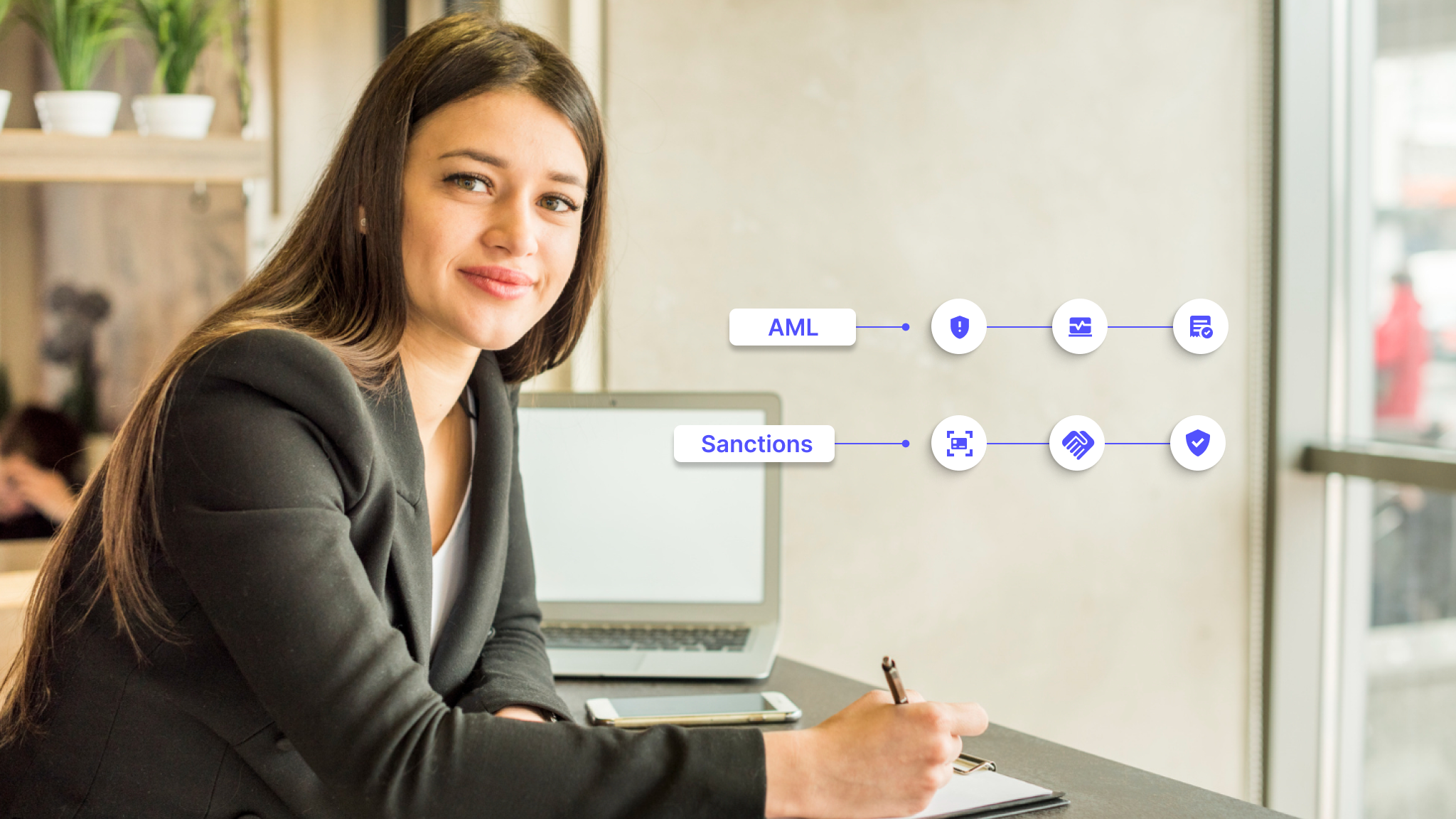











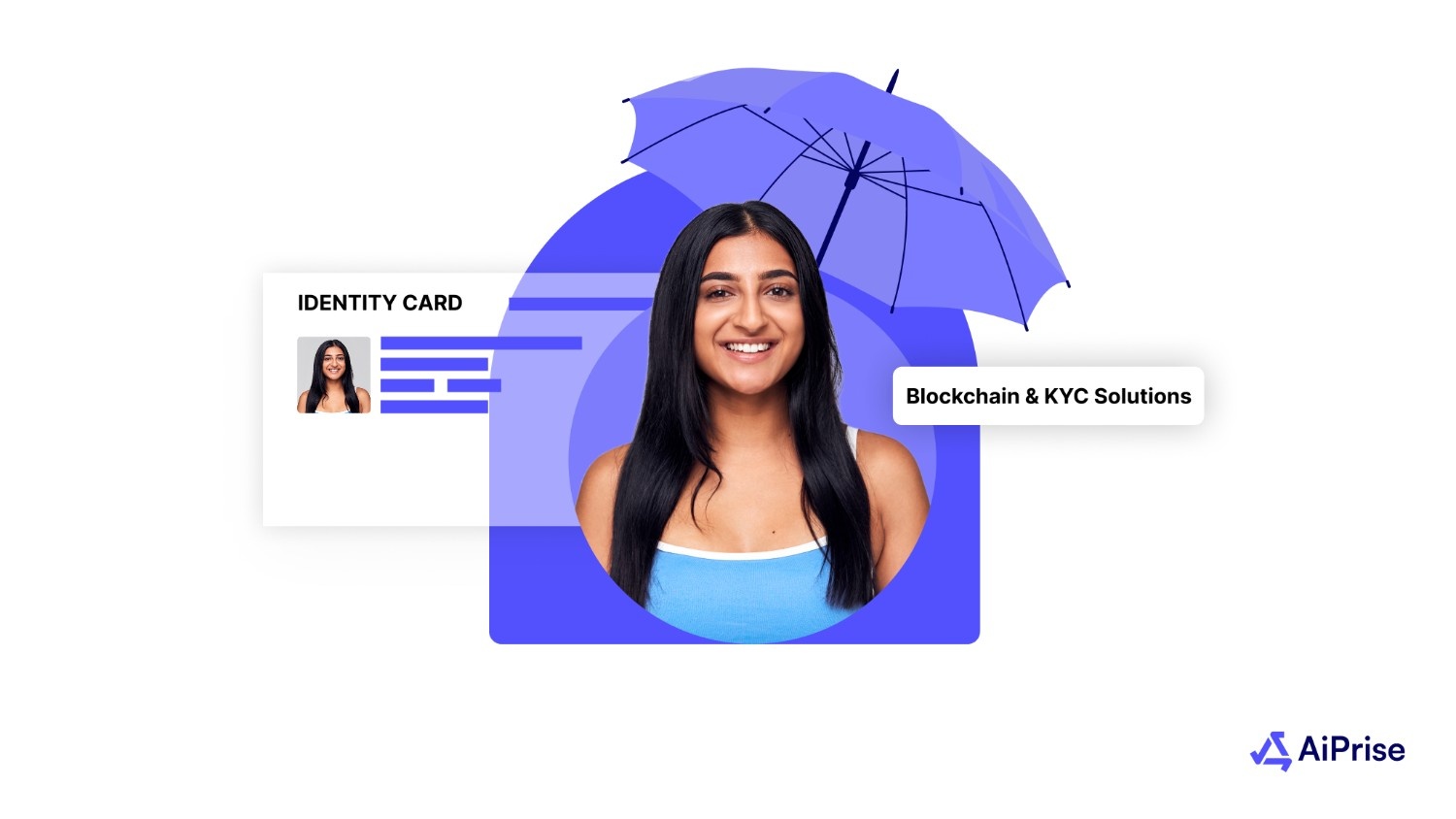

.jpeg)

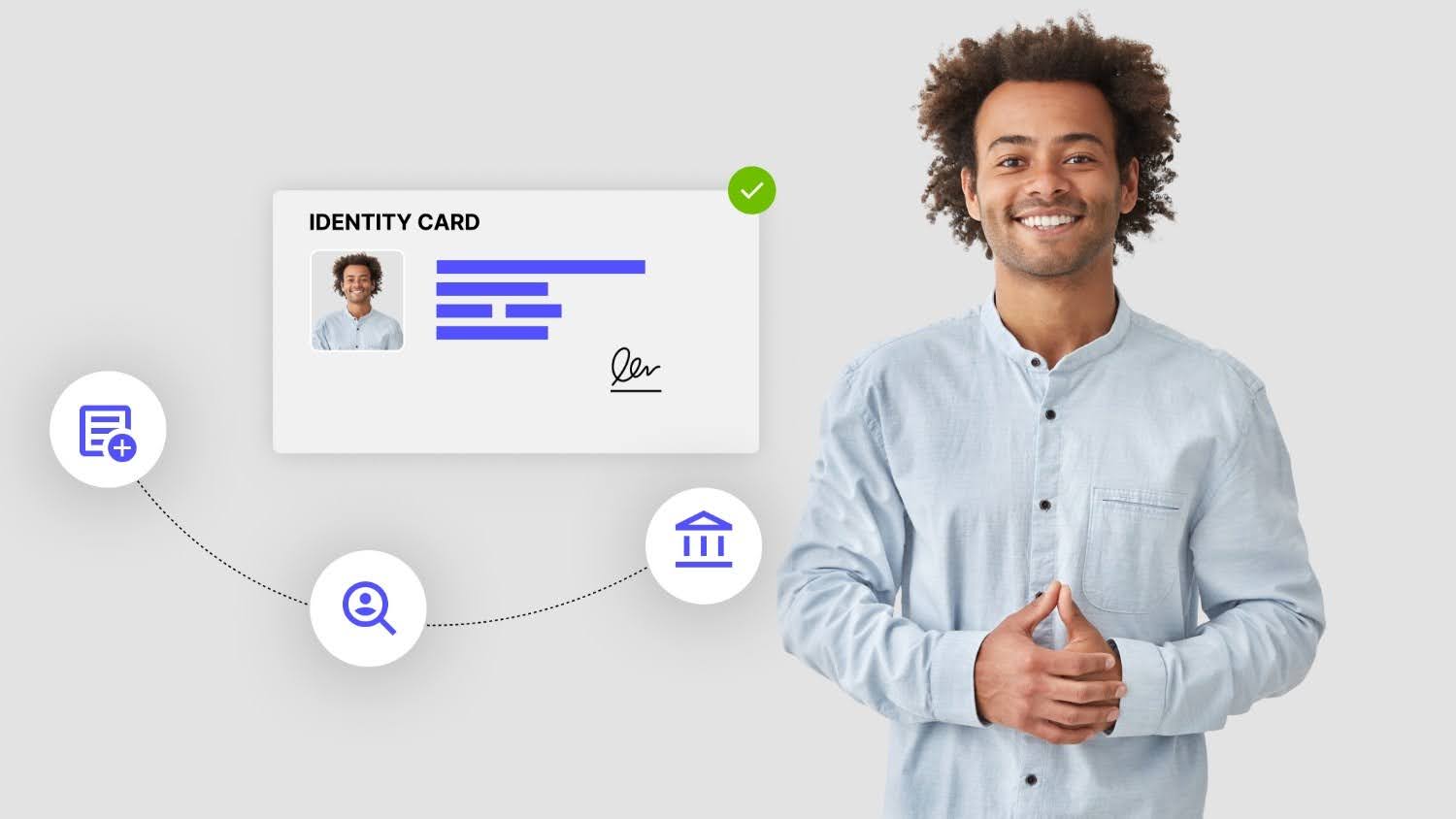

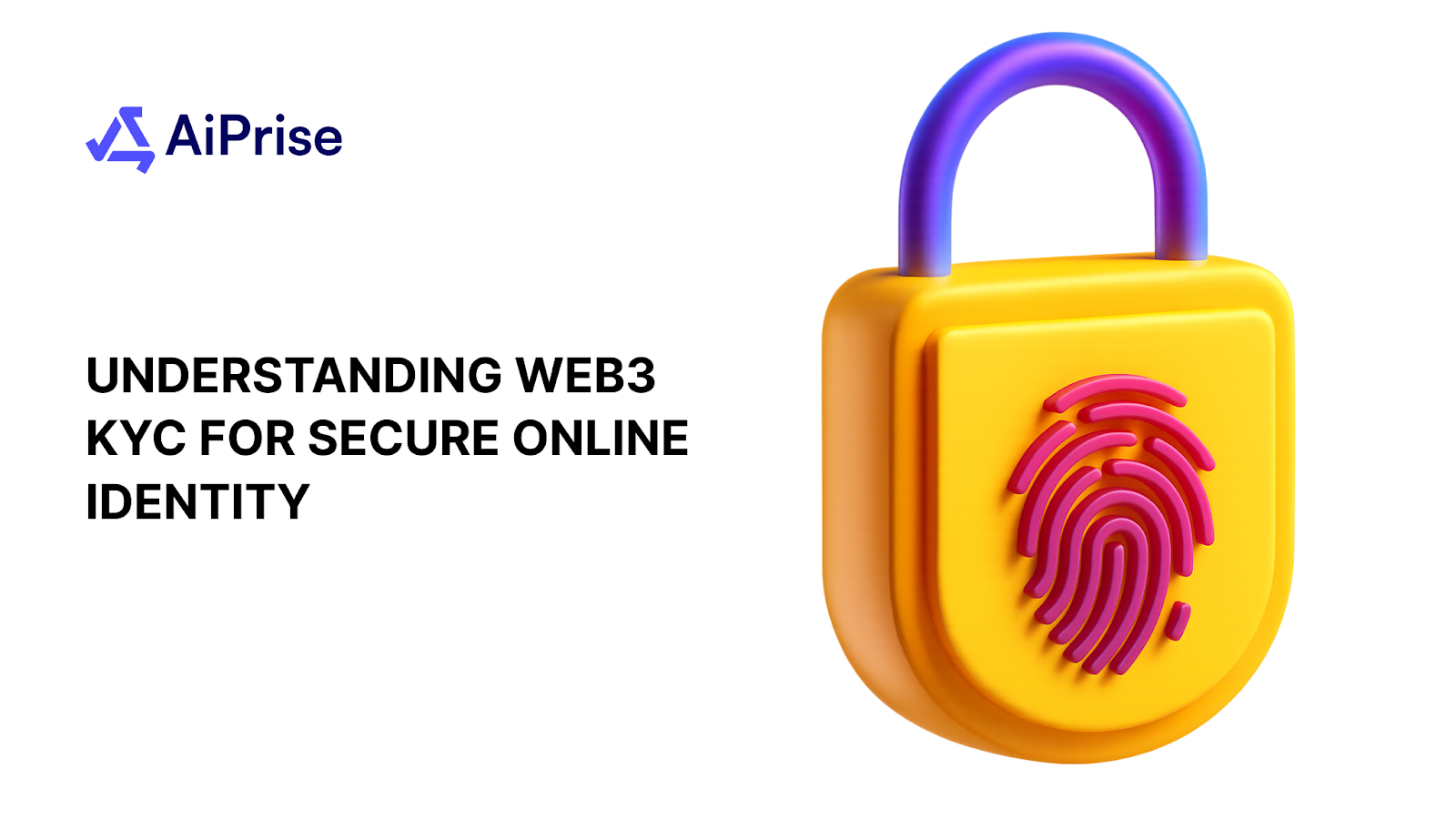
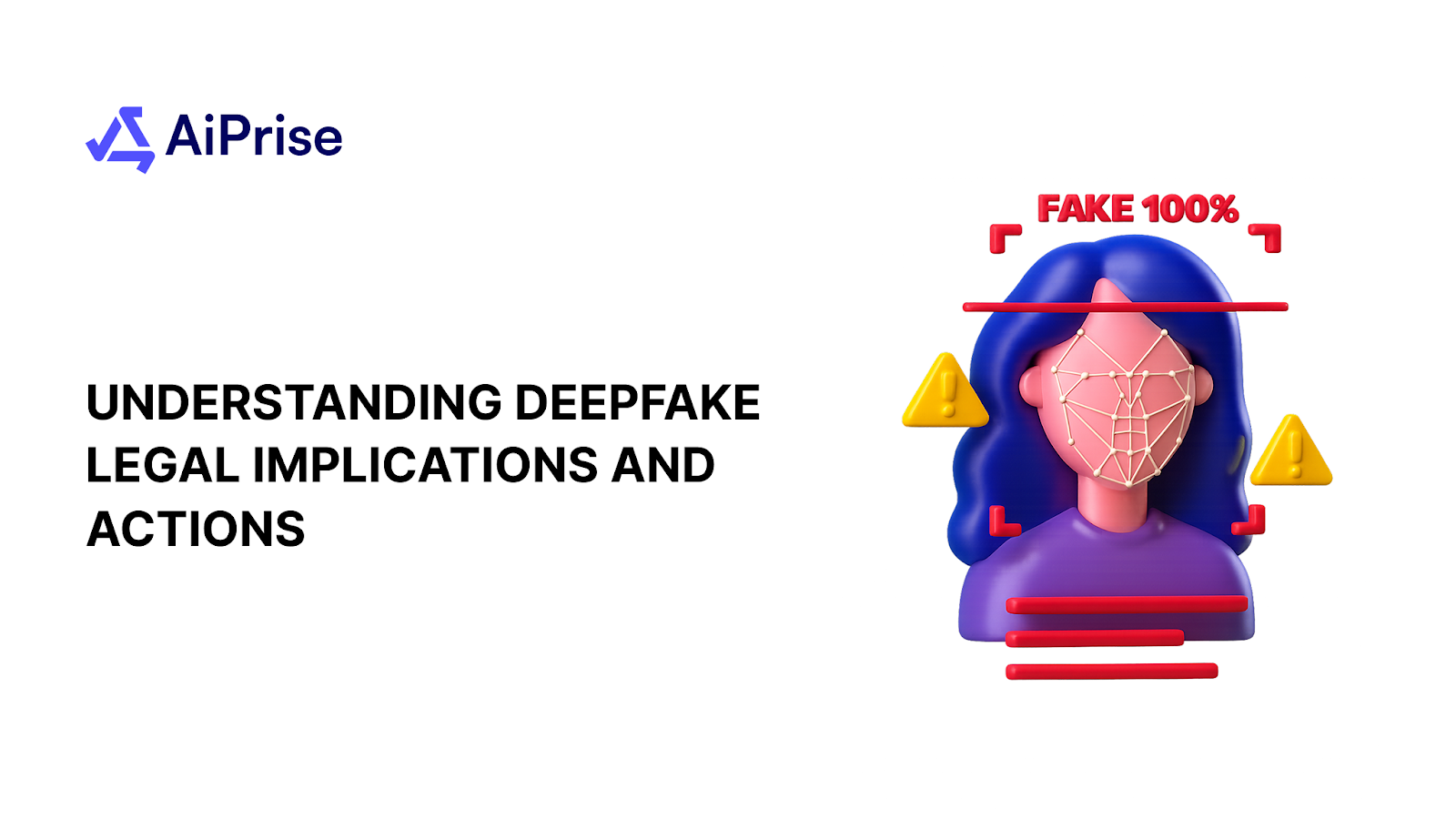
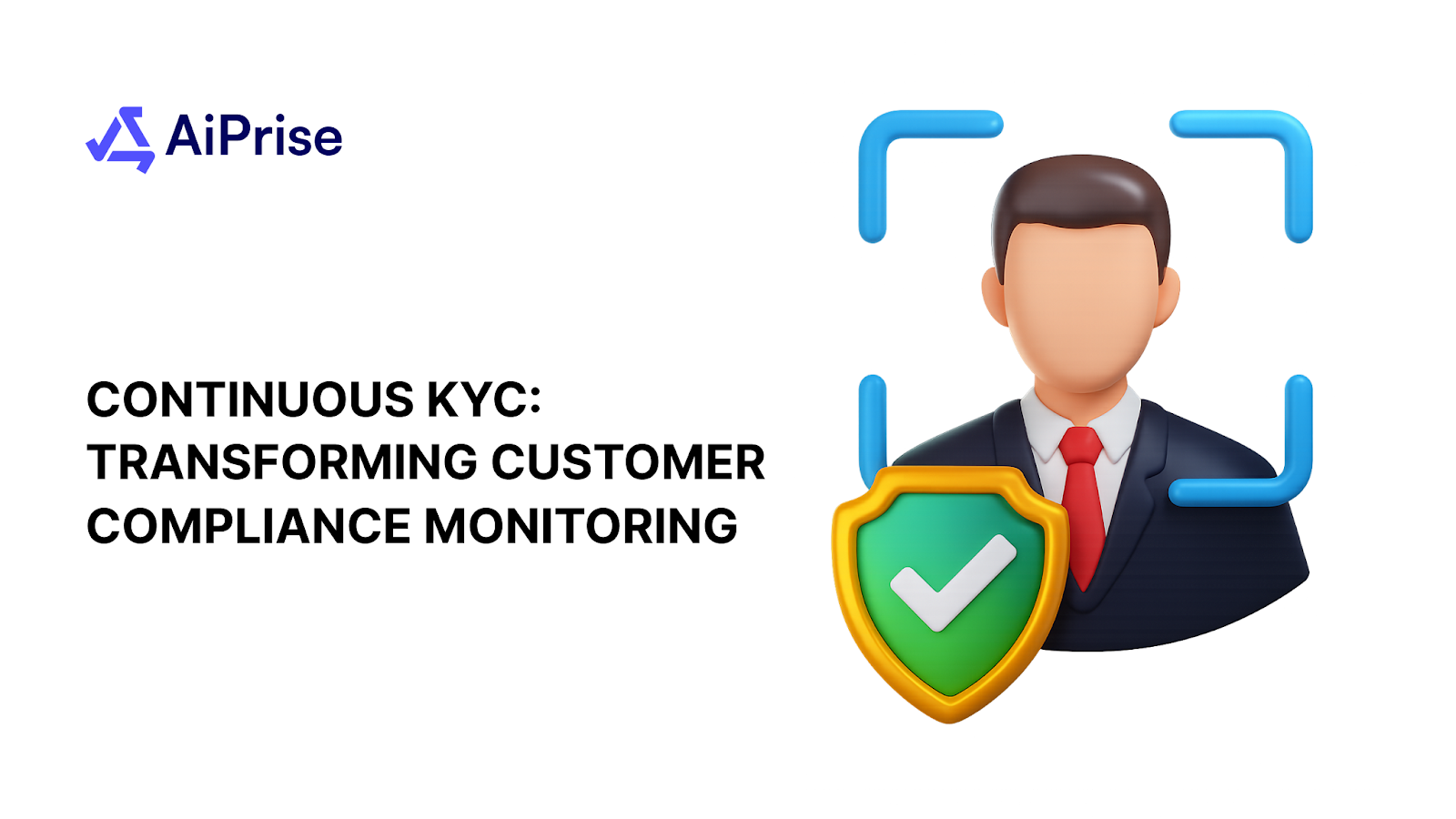
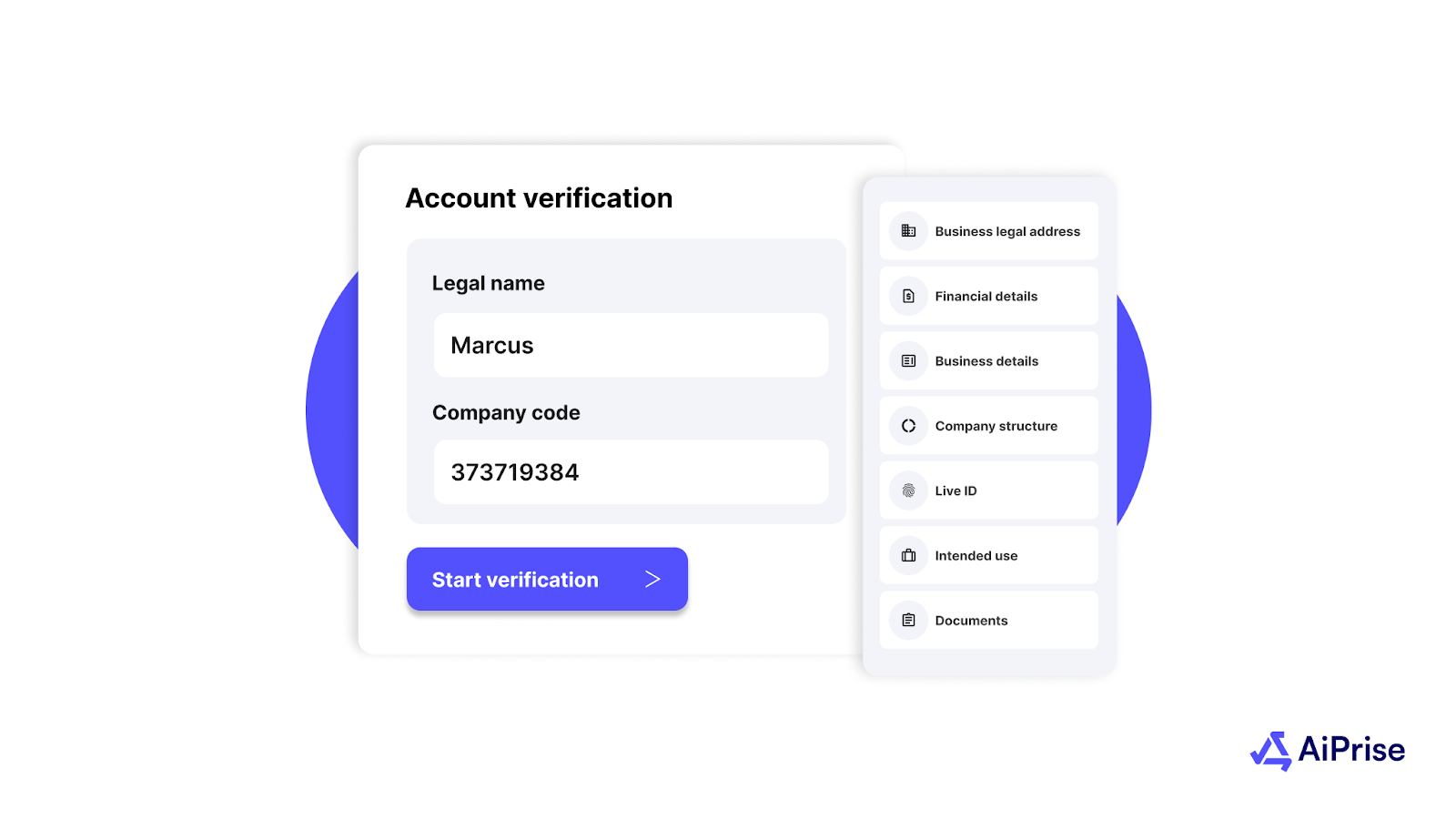
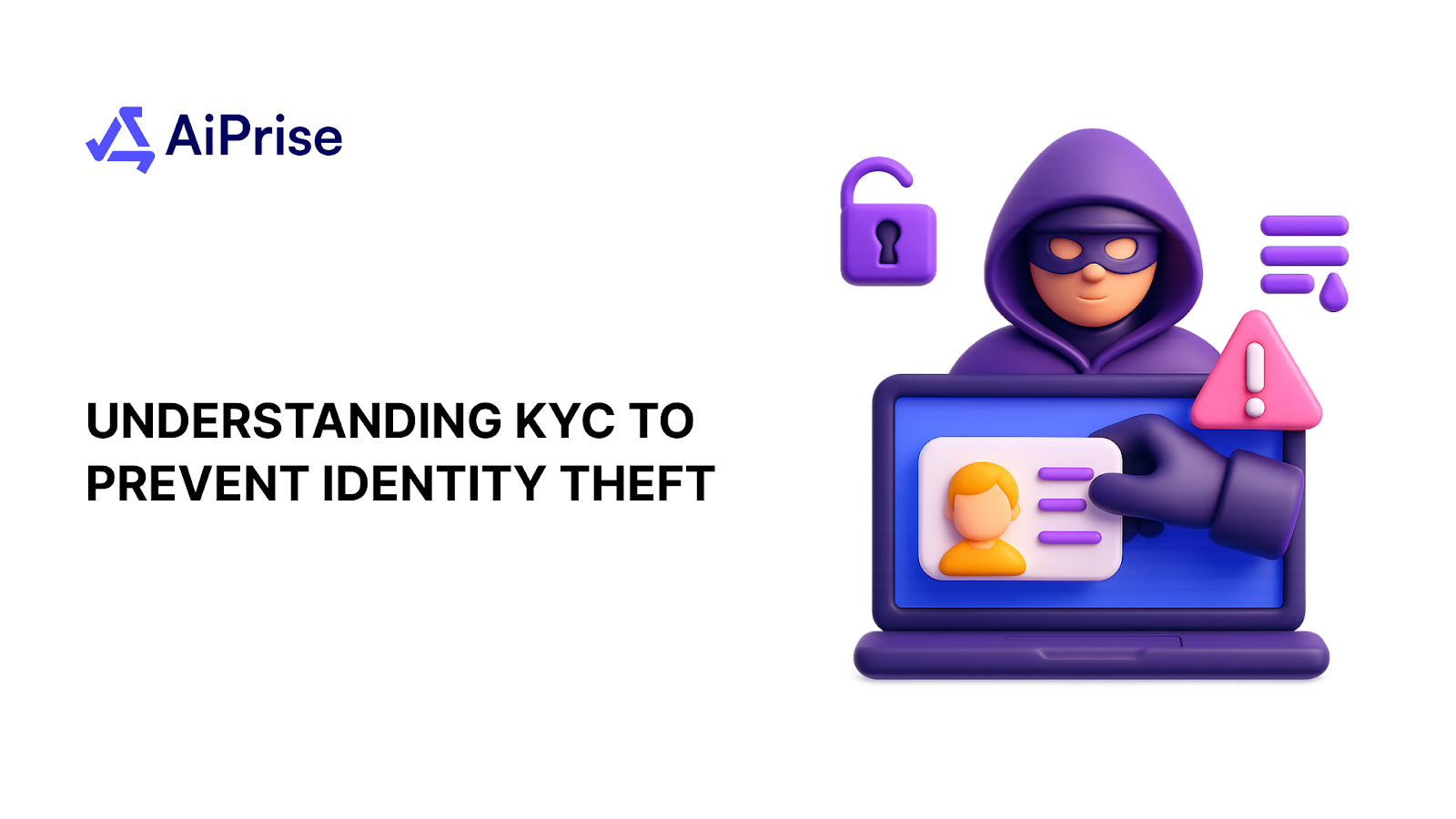


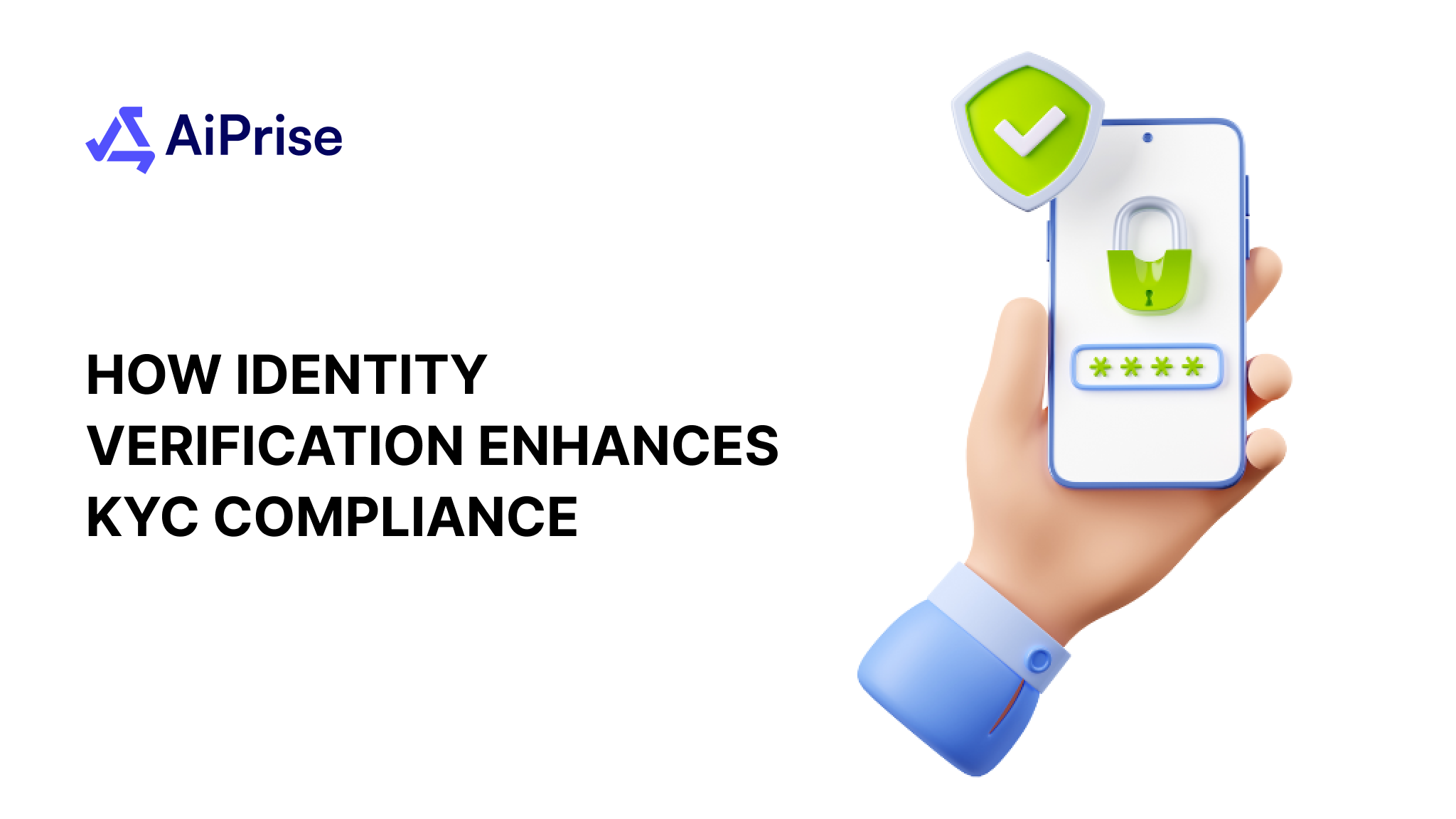

.png)

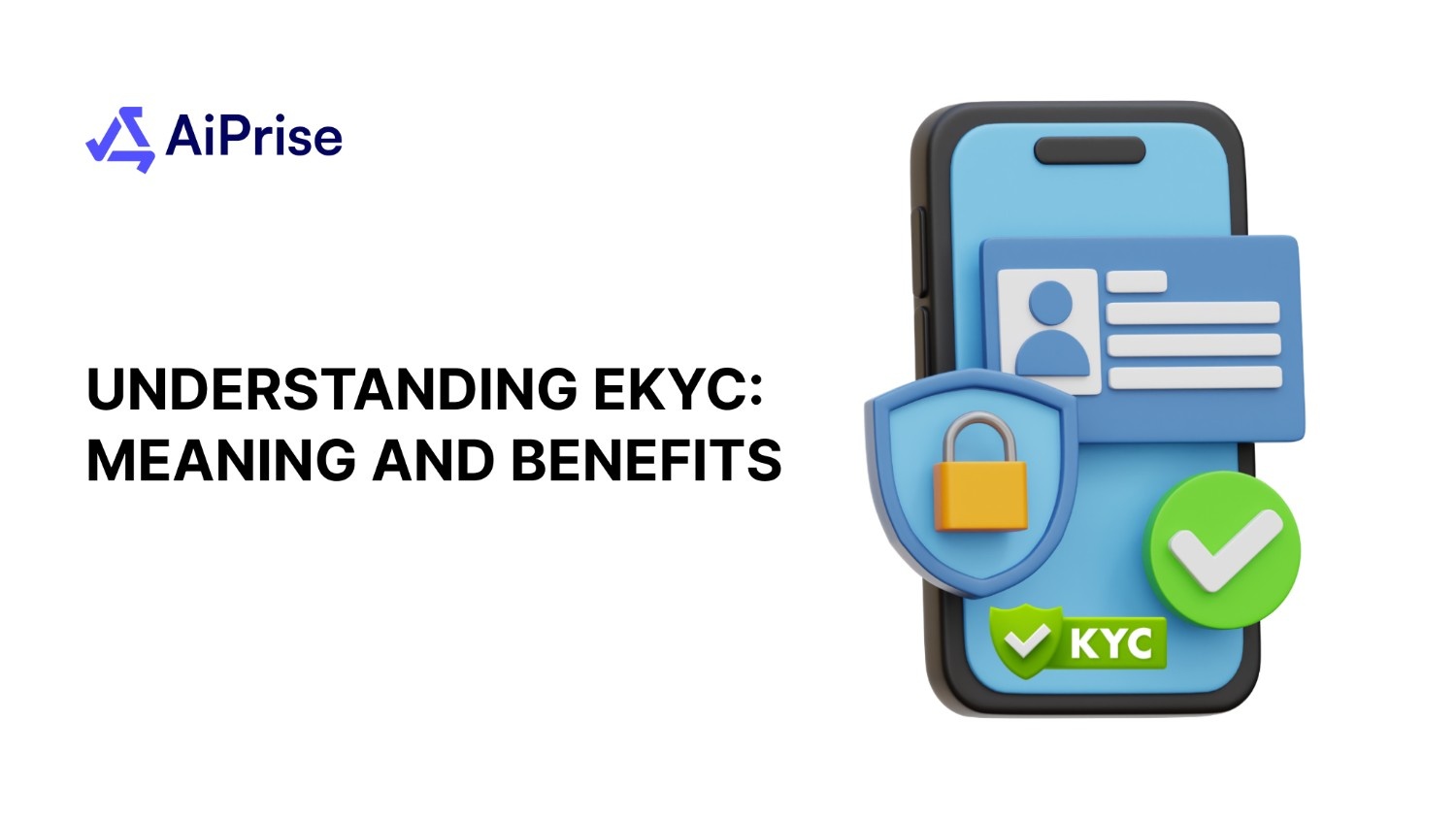
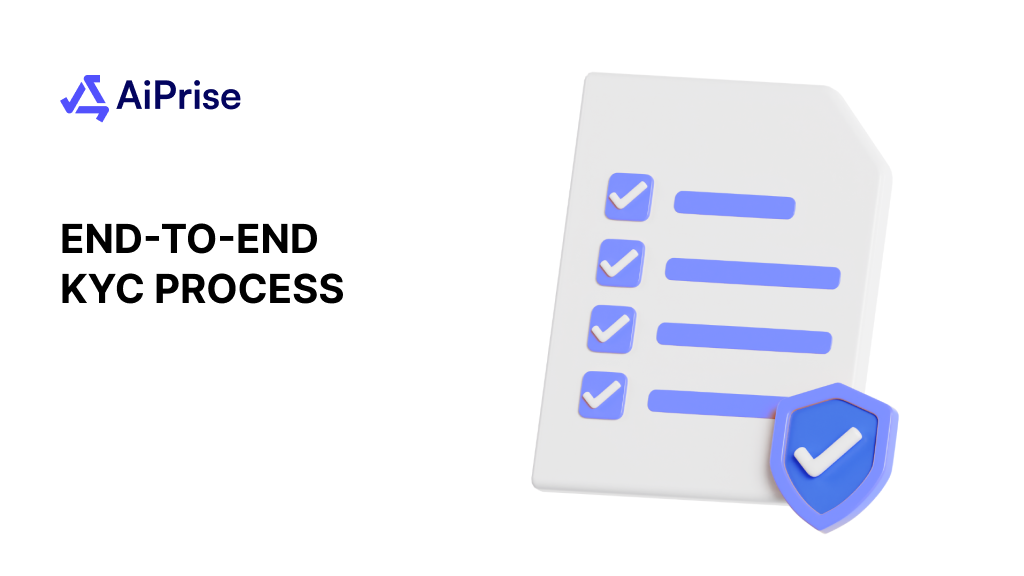
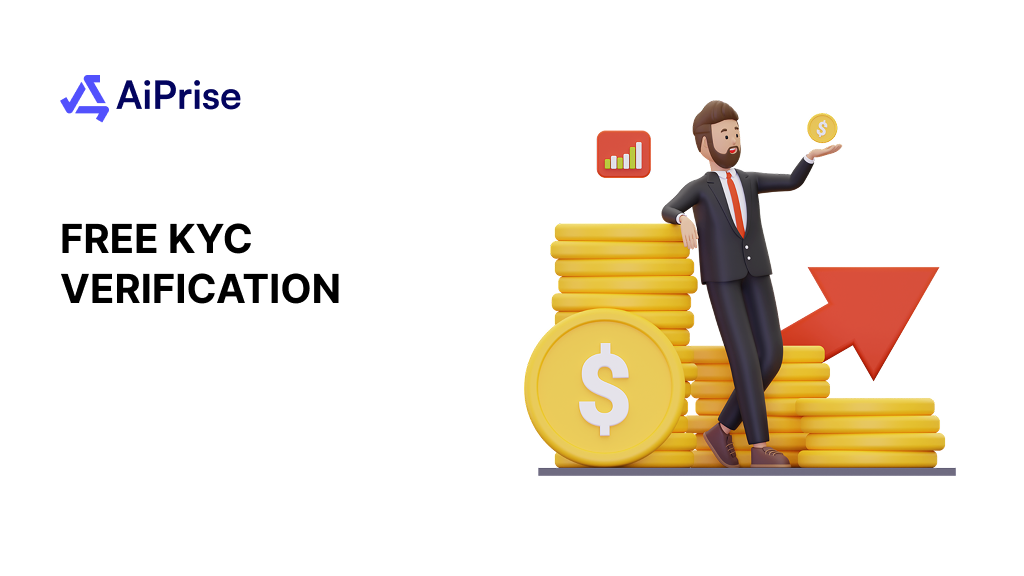
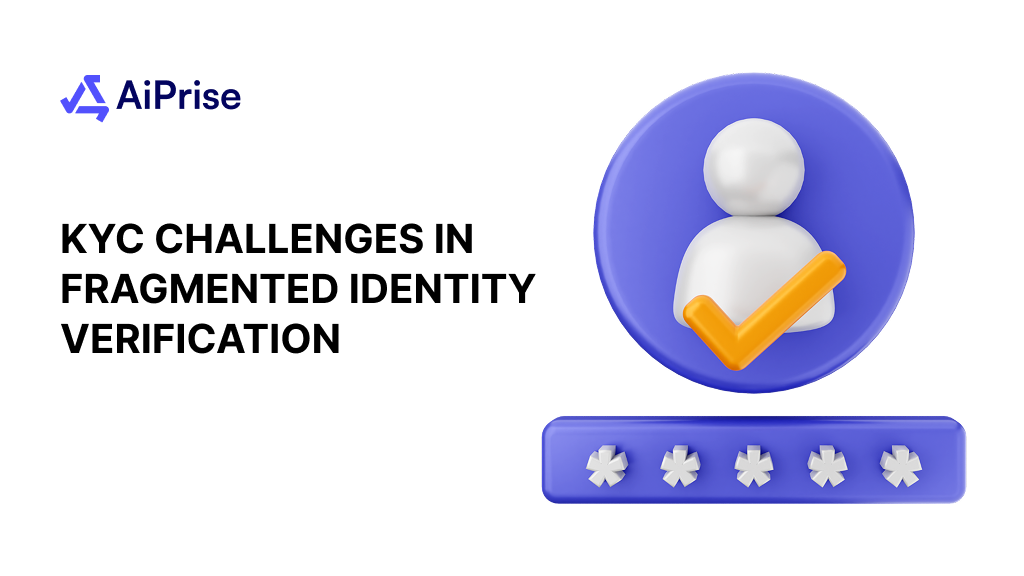
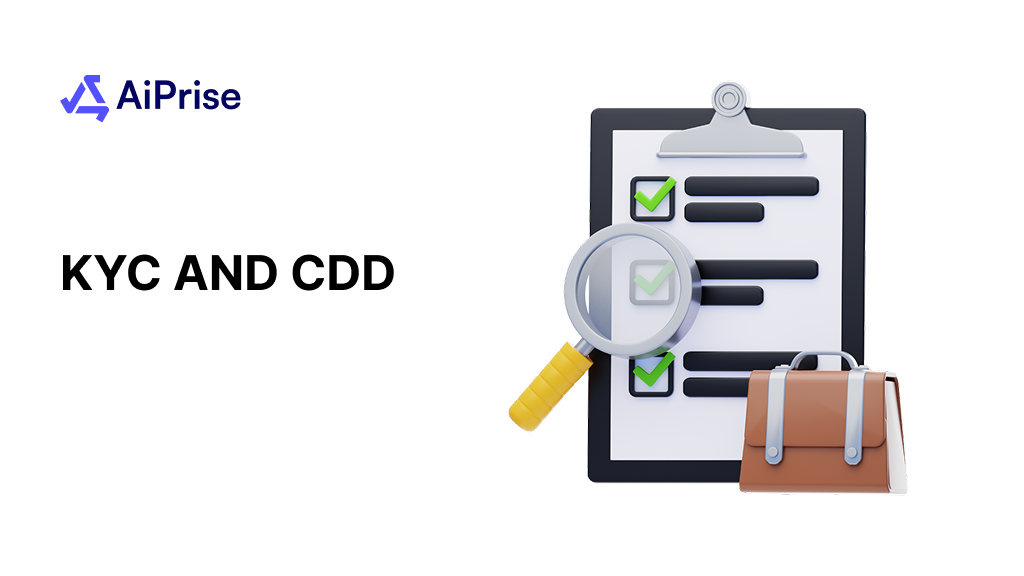







.png)






